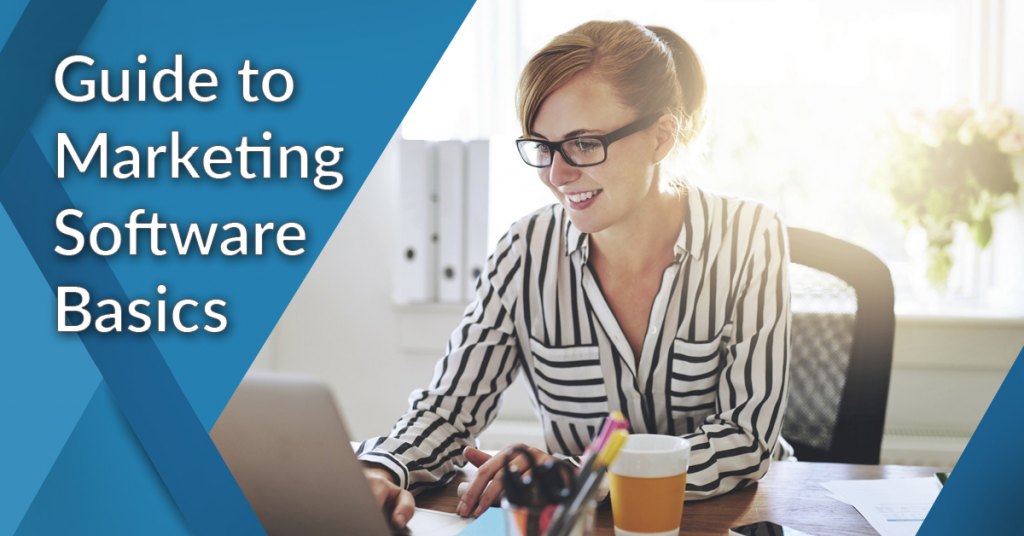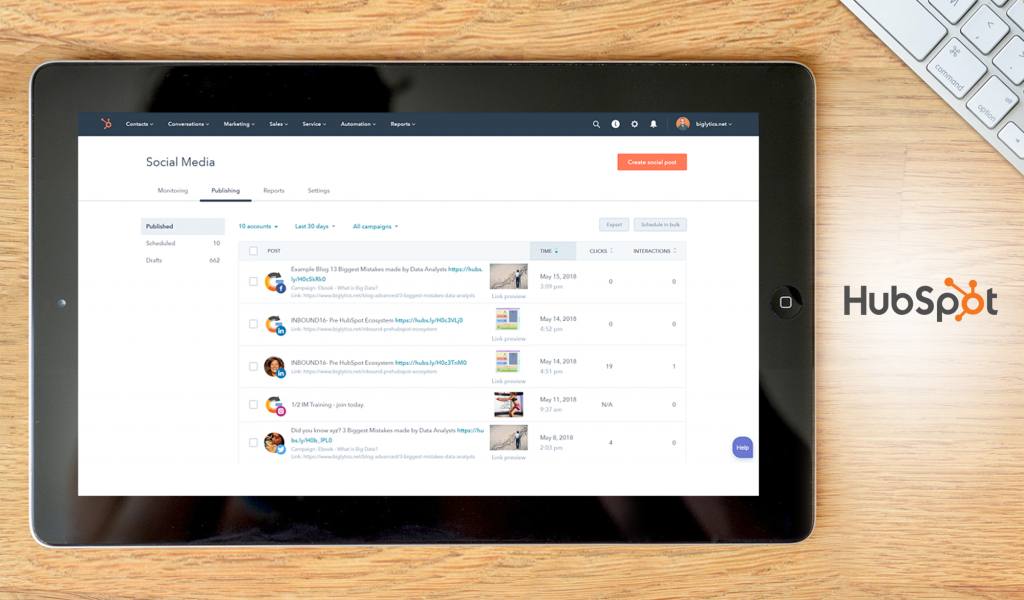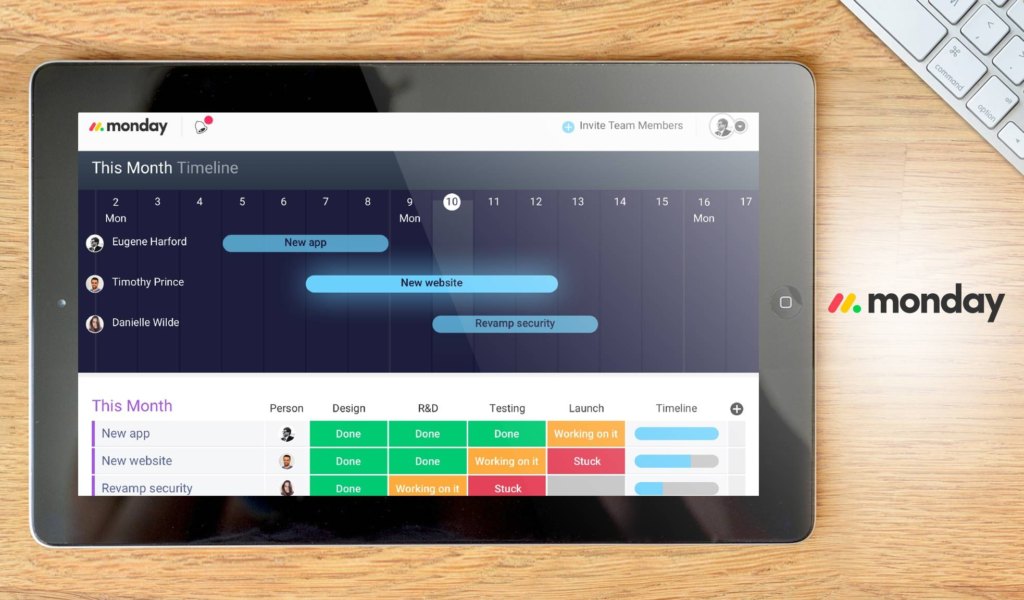Marketing software refers to tools that help businesses successfully execute campaigns, tap into their target markets and convert leads into sales. Companies, regardless of size, can benefit from marketing tools, allowing them to maximize their resources and get rid of repetitive tasks. They are also very useful in expanding businesses’ reach and allow companies to focus on more pressing matters.
The success of every business relies heavily on a company’s ability to attract and retain customers. Doing so, however, requires utilizing a cluster of processes such as data gathering, campaign management, lead nurturing, and market analysis among others. This is where marketing software comes in.
So, what is marketing software? The definition of marketing software refers to a compendium of systems designed to optimize the way businesses tap into their target market, execute campaigns, and convert leads into ROI. Ideal for companies of all sizes, this technology is useful for eliminating mundane tasks and maximizing your resources. While the cost of marketing software may be steep, it’s a worthwhile investment for those who want to expand their reach and concentrate more on other aspects of their business. Not only does this type of software reduce the amount of time and effort you spend on manual marketing techniques; it can also help you yield more profit as your business grows.
Beyond defining the software category, we’ll expound on the other aspects of marketing software. In this guide, you’ll learn its benefits, key features and issues, as well as get a few examples of marketing software.

What is marketing software?
Over the years, many surveys and studies have been conducted to monitor the efficacy of marketing software utilization. Among these a report noted that 54% of companies experienced an improvement in their campaigns through marketing software, while 37% attributed the increase in their sales to this technology. Likewise, a VB Insight study showed that 80% of marketing automation users saw an increase in leads upon implementing a software and 77% observed a growing number of conversions.
Companies Using Marketing Automation Solutions Vs. Companies Planning to Adopt Marketing Automation Solutions
Source: Emailmonday (2021)
Designed byThe questions to ask yourself now are “what is marketing software supposed to do for my business?” followed by “how will I know if it suits my company’s operations?” There are many of them available—from applications that let you manage different facets of your business operations with just a few clicks to specialized systems that target specific aspects of marketing. So, if you want to automate some of your processes, rest assured that there are options for your company.
Benefits of Marketing Software
Why use marketing software, you might ask. Whether you are looking for ways to better manage your marketing campaign, make the most out of your resources, or improve your lead nurturing process, having a good marketing software is a great way to improve your operations. Here are some of the advantages of marketing software:
- Reduces Tedious Tasks. If we focus on the definition of marketing software, we should be able to conclude that it is meant to eliminate repetitive duties that take up a huge fraction of your daily routine. Tasks such as compiling your clients’ information, sending emails to your leads, and scheduling the posting of content can be time-consuming and while they are important, they leave you with little time to focus on tasks that demand your immediate, undivided attention. By utilizing content marketing systems, resource optimization programs, and other marketing software; you can eliminate the hassle of juggling everything manually, allowing you to delegate more important responsibilities to your staff.
- Streamlines Marketing Efforts. Marketing campaigns require the simultaneous use of multiple channels to communicate with your target audience. Marketing software solutions are designed to help you coordinate various programs in a single, easy-to-manage platform. This means you no longer have to jump from system to system to execute your campaign seamlessly. Most of these applications also offer a full suite of tools that let you manage content, nurture leads, and measure your campaign efforts accurately, promptly, and efficiently.
- Improves Accountability. When it comes to monitoring or analyzing lead conversions and marketing campaigns, accountability plays an important role. With the use of marketing software, you can eliminate the risk of human error and make sure you get all the statistics you need at a glance.
- Makes Customer Management Easier. Developing relationships with potential clients at each phase of the sales process is crucial to helping your business thrive. However, this is not as simple as convincing prospects to purchase products or keeping them posted on your offers. Attracting and retaining clientele are extensive processes wherein you must pinpoint the people who will most likely need your services, listen to their concerns, and respond to them on time every time they contact you. By using a CRM software or lead nurturing system, you can effortlessly schedule email campaigns, reply to leads promptly, build a better online presence, and keep tabs on current customers.
- Document Progress Faster. Tracking your leads, resources, content, and campaign success rates may sound easy at first, but it won’t be as simple when you are dealing with multiple campaigns, handling hundreds of customers, and creating an extensive amount of content all at the same time. Using marketing systems, your company can become more agile in its varied campaign initiatives. You can quickly create accurate progress reports that help you assess the effectiveness of your strategies and determine how to improve them in the future.

A quick look at your social media campaign on a HubSpot Marketing dashboard.
Key Features of Marketing Software
The purpose of marketing software is to make the jobs of marketers simpler and faster. Over the years, marketing software systems have evolved to stay up-to-date with modern business and communication trends. They are comprised of extensive features that you can use and modify to suit the needs of your business. Still wondering–how does marketing software work? Read on to learn more about its features.
- Real-Time Alerts. Quick response time is an important factor when it comes to closing deals. With real-time alerts offered by marketing software, you and your sales reps can engage leads more quickly and provide prompt assistance to your existing clientele. Some applications may even offer trigger response features to help you identify and act on your customers’ key life events and transaction patterns.
- Lead Management. Marketing software can increase sales efficiency and optimize marketing campaigns through the management of leads. With this feature, you should be able to closely monitor and nurture more potential buyers with less difficulty. Lead management applications can also provide you with the necessary information to make personalizing sales outreach a breeze. Additionally, these programs have tools to let you track sales activity and find pipeline trends with just a few clicks.
- Campaign Management. Creating comprehensive marketing schemes need not be complicated. With countless campaign management systems available, you can get easy access to plenty of integrations and tools to help you organize, track, and analyze the progress of your marketing efforts.
- Social Media Automation. In the modern age, using social media websites has proven essential when it comes to understanding and interacting with your target market, but studying when and what to post can be demanding. If you wish to simplify this process, social media automation might be the solution for you. Aside from helping you navigate through networks, this feature can inform you about the best time to post, allow you to queue the publishing of your content, and alert you when your brand is mentioned online.
- Email Marketing. Fast and cost-effective, emailing is one of the best ways to increase brand awareness and stay in touch with customers. However, increasing its efficiency and measurability can be a handful, especially when you have plenty of leads and customers to take care of. By implementing an email marketing software, you can take out the hassle of having to manually sort and send emails and concentrate more on producing targeted messages that pique the interest of your clientele. Numerous programs also have tools to categorize your leads according to demographics and interests, so that you can prioritize certain groups in your email marketing campaign with relative ease.
- Analytics. Making critical business decisions is a vital step towards improvement, but it must be backed by facts. A marketing software helps in facilitating data-driven decision-making process for your company through analytics solutions. Designed to help you monitor your campaigns and measure your ROI, this feature will collect data for you and present it in a comprehensible manner, so you can take well-informed measures in adjusting your campaigns.

monday marketer’s centralized dashboard makes it easy to keep every remote team member on the same page.
Examples of Marketing Software
There is a plethora of programs available on the market that you can utilize for your business. Some examples of marketing software are:
HubSpot Marketing Hub
HubSpot Marketing Hub offers various digital marketing tools that highlight systematic management, automation, and in-depth business data. The comprehensive marketing platform enables organizations to organize and access contact records and campaigns. HubSpot Marketing Hub also utilizes the power of artificial intelligence (AI), automation, and user-friendly design tools, such as an automated live chat and an online form builder. The business solution is equipped with these features to generate, nurture, and convert leads to customers. Moreover, organizations are well-informed about team progress and campaign performance through analytics, reports, and dashboards, allowing them to improve through losses and celebrate wins. HubSpot Marketing Hub offers users free plans that include popular essential features, such as email marketing, forms, and landing pages.
monday marketer
monday marketer is designed as an all-in-one solution that can help businesses streamline various marketing workflows. The product comes with various built-in boards and dashboards that teams can customize according to their unique processes. For instance, teams can plan all long-term marketing initiatives through the Marketing Plan board. This board helps users set high-level goals and define metrics to measure performance by. On a more specific level, teams can also set up a Content Calendar board to organize and track different types of content across various marketing channels. You can use these features for free when you sign up for an Individual plan, which is free for up to 2 seats. Enterprise pricing is also available for the product.
Maropost Marketing Cloud
As a marketing platform, Maropost Marketing Cloud features a multichannel automation that helps you streamline and consolidate your campaigns. You can manage your email, text, mobile and web campaigns in one place. You can also create different buyer’s journeys abetted by trigger emails, unique coupons, and rule-based SMS messages and notifications. A spam checker and data-driven deliverability score help increase open rates of your push messages and, ultimately, increase your email marketing return. Maropost Marketing Cloud integrates with a wide range of ecommerce software, forms automation, affiliate marketing platforms and CRM tools. Pricing is by quote and based on your feature set.
MailerLite
MailerLite boasts of a simple UI packed with powerful tools to boost your email marketing. You can design dynamic emails or use templates. You can also launch newsletters with ease using the software’s drag & drop, rich text or custom HTML features. MailerLite also helps you build landing pages, websites, pop-ups and forms for end-to-end email campaigns. Furthermore, it helps you optimize campaigns with insights through A/B testing, surveys or segmentation. Other key features include advanced email automation for personalized emails and newsletter monetization tools. The vendor offers live 24/7 support. The app is free for up to 1,000 subscribers. Beyond that, pricing starts from $10.
Campaigner
Campaigner is a marketing software solution created specifically for email and SMS campaigns. It helps drive sales and deliver optimized customer journeys using automated workflows. For starters, it provides users with tools like geolocation, segmentation, and localization to create personalized campaigns. It also comes with contact management solutions and campaign experimentation to help you make the most out of each marketing campaign.
Mayple
Mayple is a talent platform of marketing experts ideal for companies looking to grow the business with the help of marketers in paid advertising, email marketing, social media management and SEO, among others. It claims to have the top 5% of marketing experts in its database, vetted for proven record and objective evaluation. As opposed to broad-based job marketplaces, Mayple focuses on marketing and uses a data-vetting process that classifies talents basted on key metrics like expertise, years of experience and platform. The talents are also evaluated for their actual work portfolio.
Marketing Creatio
Marketing Creatio is a multichannel marketing CRM that helps you manage leads across different customer journeys. You can streamline communication across your channels, and access customer data from all your touchpoints and get a holistic picture of your customers. The software features no-code tools that help you create audience segments based on demographics and behavioral data. Likewise, it helps you manage complex marketing campaigns across various channels and boost demand generation. The result is, you accelerate conversions and reinforce customer retention. Other key features include email marketing, website analytics and marketing resource management. Pricing starts at $1,042 for 1,000 active contacts, the minimum volume.
semrush
Semrush combines SEO, content marketing, PPC, competitor research, and social media marketing in an all-in-one marketing suite. It leverages powerful SEO analytics tools to help you create and execute effective and SEO-friendly marketing content. It also has a content optimization tool that allows you to optimize your content and drive more traffic to your website. Furthermore, Semrush provides an array of post tracking features that enables you to measure the performance of your marketing content and compare it with your competitors.
Issues on Marketing Software
Plenty of companies that have been around a long time often have trouble adapting new technologies. They often ask “what is marketing software?” or “what does marketing software do?” but don’t invest enough time to learn enough about it. This is why we compiled the basic information they’ll need before selecting the best software for their business
While marketing software is unquestionably useful in optimizing business operations, it is not completely free from drawbacks. So, if you’re planning on purchasing one for your company, be sure to look out for the following issues:
- Security Issues. By using a marketing software, confidential information from your database is readily accessible to anyone in your company at any given time. This holds true especially for cloud-hosted applications. To prevent data breaches, you may need to implement security measures that prevent unauthorized personnel from being able to connect to your marketing system.
- Difficulties in process integration. Marketing system solutions are created to cut down the humdrum duties that come with every campaign. However, that doesn’t mean that it can automate your tasks from the get-go. No matter how user-friendly this software may be, it still relies on the input of the operator. Meaning, a certain amount of training is needed to be able to integrate this program into your system. If you want to ensure the success of its implementation, you must proactively learn what the software can do and be patient as you adjust to it.
- Underutilization of staff. Most marketing software can fully automate the various tasks involved in your campaigns. Because of this, overdependence on the program may occur, leading to employee underutilization. If qualified, trained employees are not being used to their full potential, it will have been a waste of your company’s resources. Make sure you wield your workforce wisely by giving them more responsibilities that hone their skills and challenge their creativity.
Future Trends in Marketing Software
As marketing software evolves, new trends shape how companies connect with their audiences. Here’s a look at some of the key future trends in marketing software:
- AI-Powered Insights and Automation: Artificial intelligence (AI) transforms marketing by delivering advanced analytics, automating repetitive tasks, and personalizing content at scale. AI-driven features like predictive analytics and chatbots allow marketers to engage customers more effectively and make data-driven decisions faster.
- Increased Focus on Personalization: Customers expect tailored experiences, and marketing software is responding with more personalized solutions. Using data from customer interactions, software can create dynamic content for specific segments, improving engagement and customer satisfaction.
- Voice Search Optimization: As voice search grows in popularity, marketing software adapts to optimize content for voice-based queries. Features that assist with voice SEO will become essential as marketers aim to reach users on voice-enabled devices.
- Integration of Augmented Reality (AR): Augmented reality is emerging as a tool for immersive marketing experiences. Future marketing software will likely offer AR integrations, allowing users to experience products virtually, creating a more interactive customer journey.
- Data Privacy and Compliance Tools: With increasing regulations, future marketing software will prioritize tools for data privacy and compliance. Features like consent management and GDPR compliance will help marketers navigate complex privacy laws and maintain customer trust.
Key Insights
- Marketing Software Defined: Marketing software refers to tools that help businesses execute campaigns, target markets, and convert leads into sales, making it essential for businesses of all sizes to maximize resources and reduce repetitive tasks.
- Benefits of Marketing Software: Key advantages include reducing tedious tasks, streamlining marketing efforts, improving accountability, simplifying customer management, and facilitating faster documentation of progress.
- Key Features of Marketing Software: Essential features include real-time alerts, lead management, campaign management, social media automation, email marketing, and analytics, all designed to simplify and accelerate marketing tasks.
- Examples of Marketing Software: Prominent examples include HubSpot Marketing Hub, monday marketer, Maropost Marketing Cloud, MailerLite, Campaigner, Mayple, Marketing Creatio, and Semrush, each offering unique tools and functionalities to enhance marketing strategies.
- Issues on Marketing Software: Potential drawbacks include security concerns, difficulties in process integration, and the risk of staff underutilization, emphasizing the need for proper training and balanced use of technology and human resources.
FAQ
- What is marketing software? Marketing software encompasses a range of tools designed to help businesses optimize their marketing efforts by executing campaigns, targeting specific markets, and converting leads into sales. It automates repetitive tasks and maximizes resources.
- What are the benefits of using marketing software? Marketing software offers numerous benefits, such as reducing tedious tasks, streamlining marketing campaigns, improving accountability, simplifying customer management, and speeding up the documentation of marketing progress.
- What are some key features to look for in marketing software? Key features of marketing software include real-time alerts, lead management, campaign management, social media automation, email marketing, and analytics. These features help streamline and enhance various aspects of marketing operations.
- Can you provide examples of popular marketing software? Some popular marketing software examples are HubSpot Marketing Hub, monday marketer, Maropost Marketing Cloud, MailerLite, Campaigner, Mayple, Marketing Creatio, and Semrush. Each offers unique features tailored to different marketing needs.
- What are some common issues with marketing software? Common issues with marketing software include security concerns, integration difficulties, and the potential underutilization of staff. It’s essential to implement security measures, provide adequate training, and balance the use of technology and human resources.
- How can marketing software improve accountability? Marketing software improves accountability by reducing the risk of human error and providing detailed analytics and reports. This ensures accurate tracking of lead conversions and marketing campaign performance.
- What should businesses consider before adopting marketing software? Businesses should consider the software’s compatibility with their existing systems, the training required for effective use, and potential security measures to protect sensitive data. They should also evaluate how the software can best be integrated into their overall marketing strategy.


























Leave a comment!